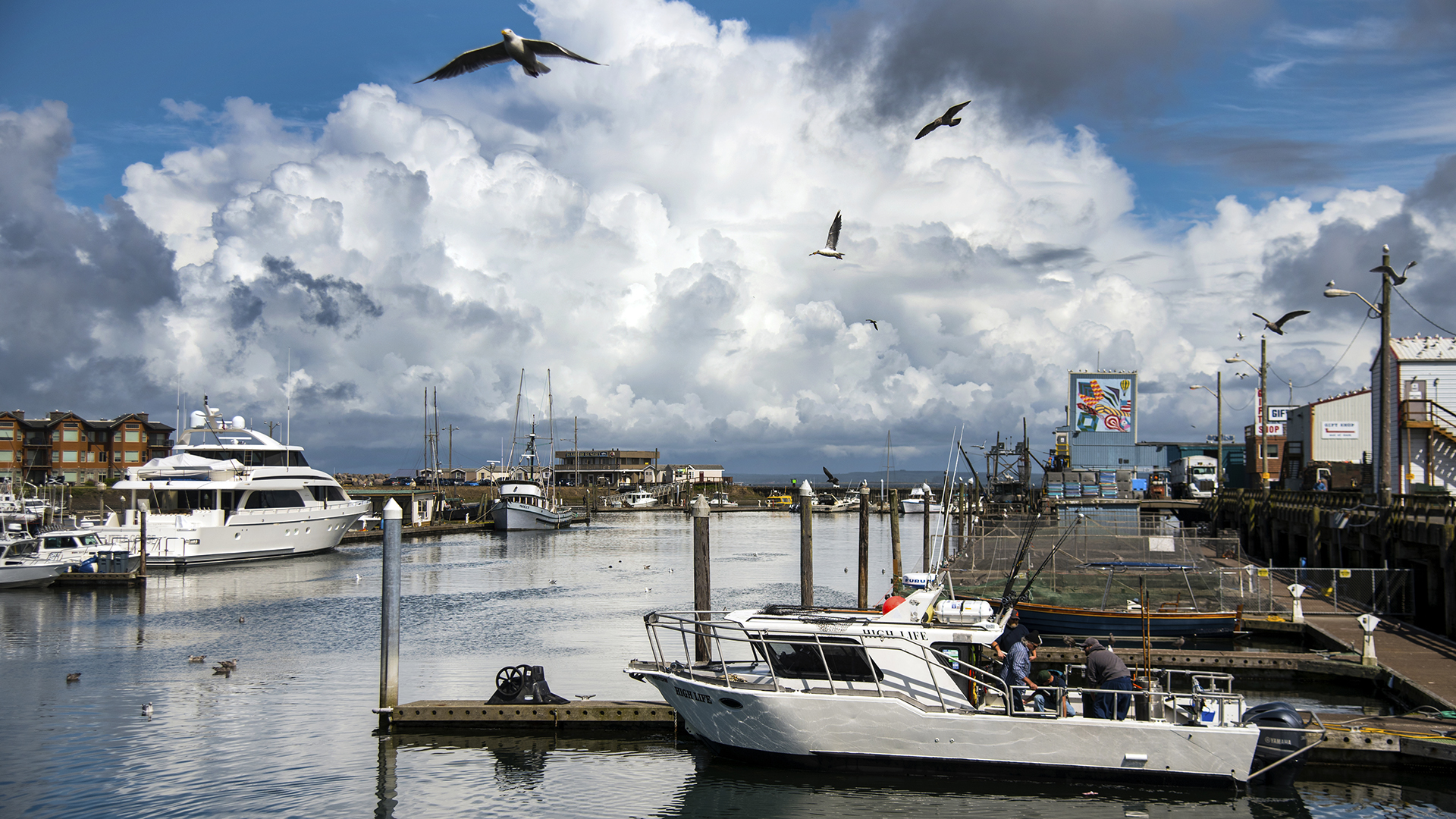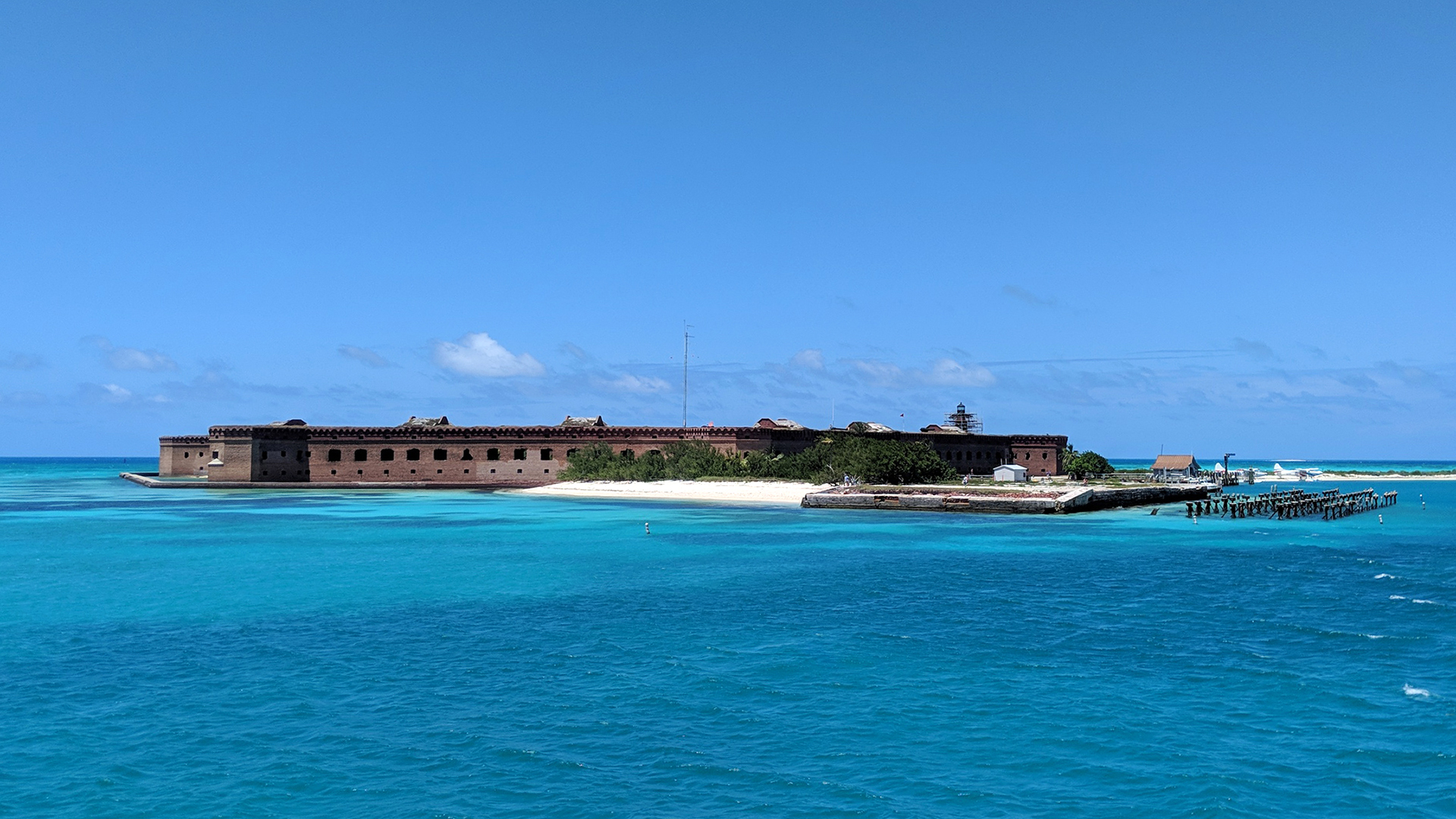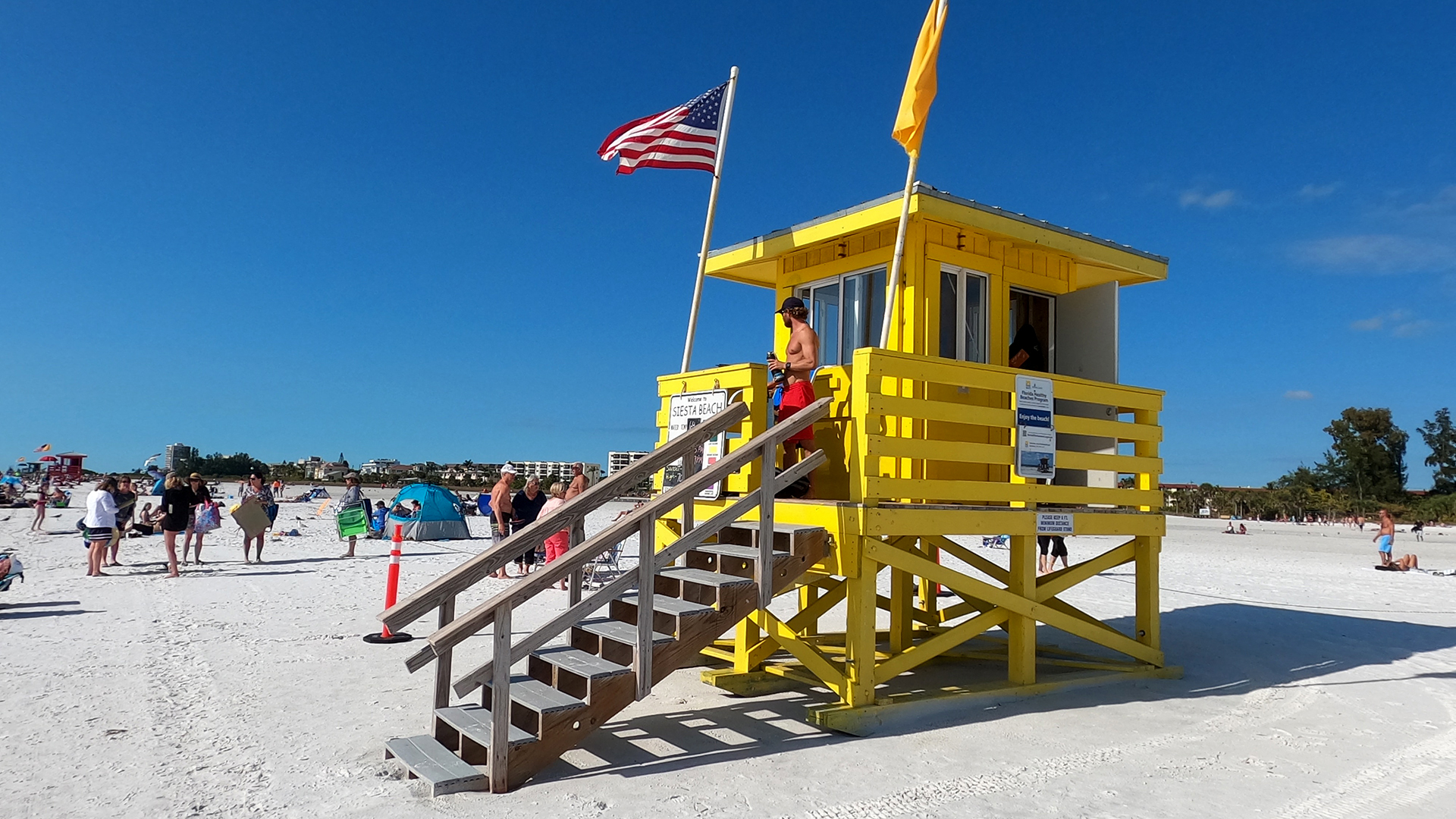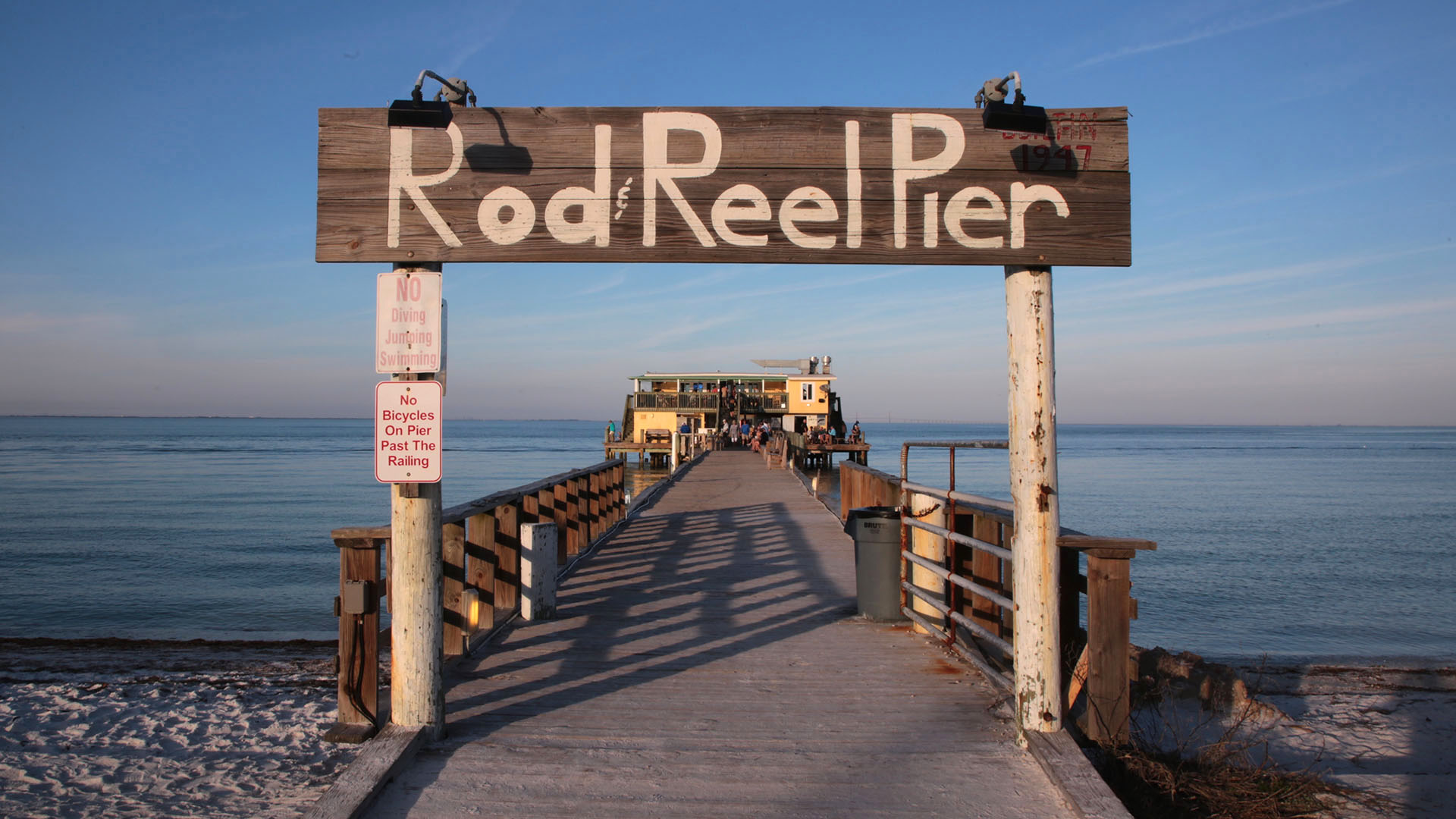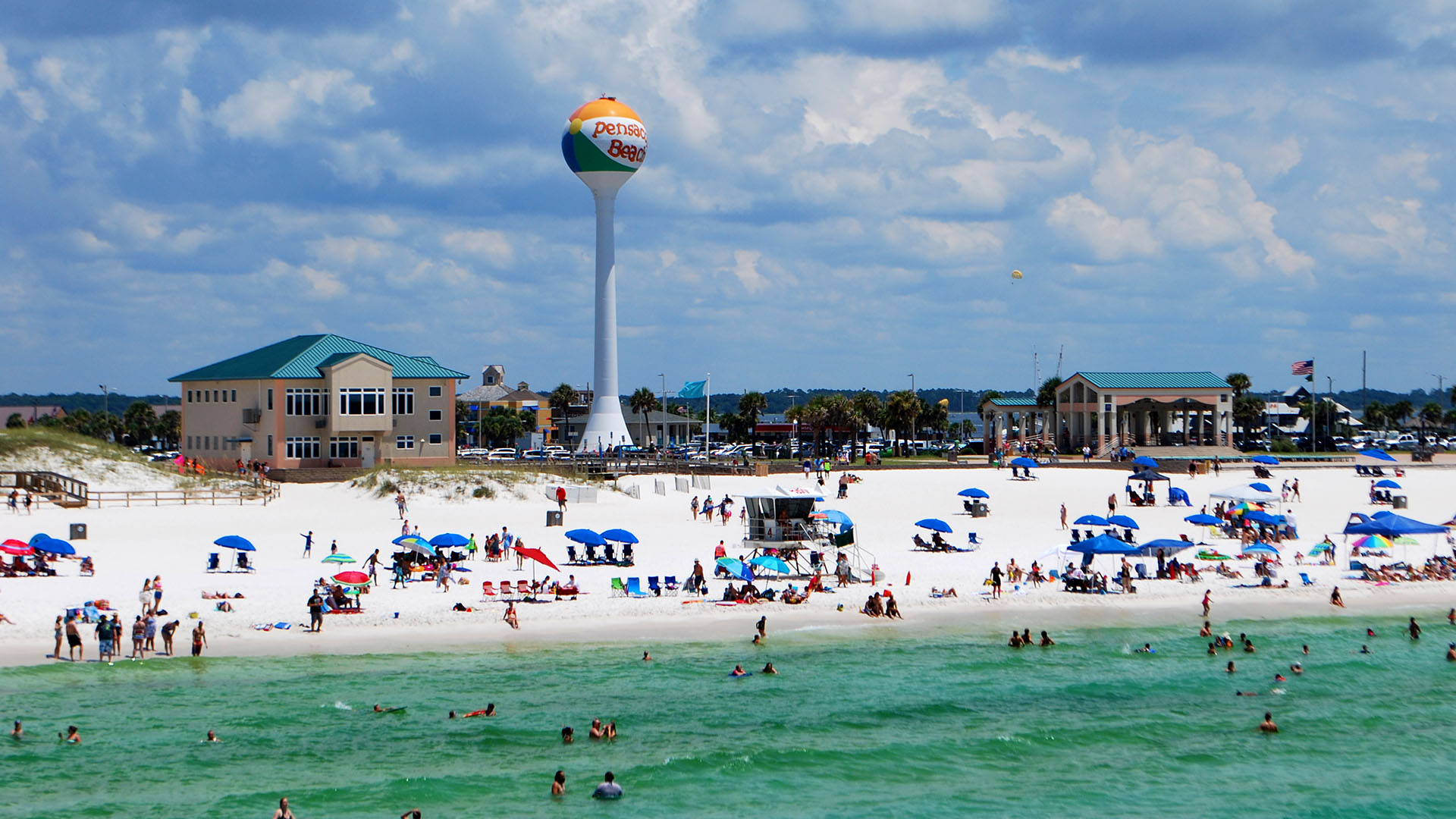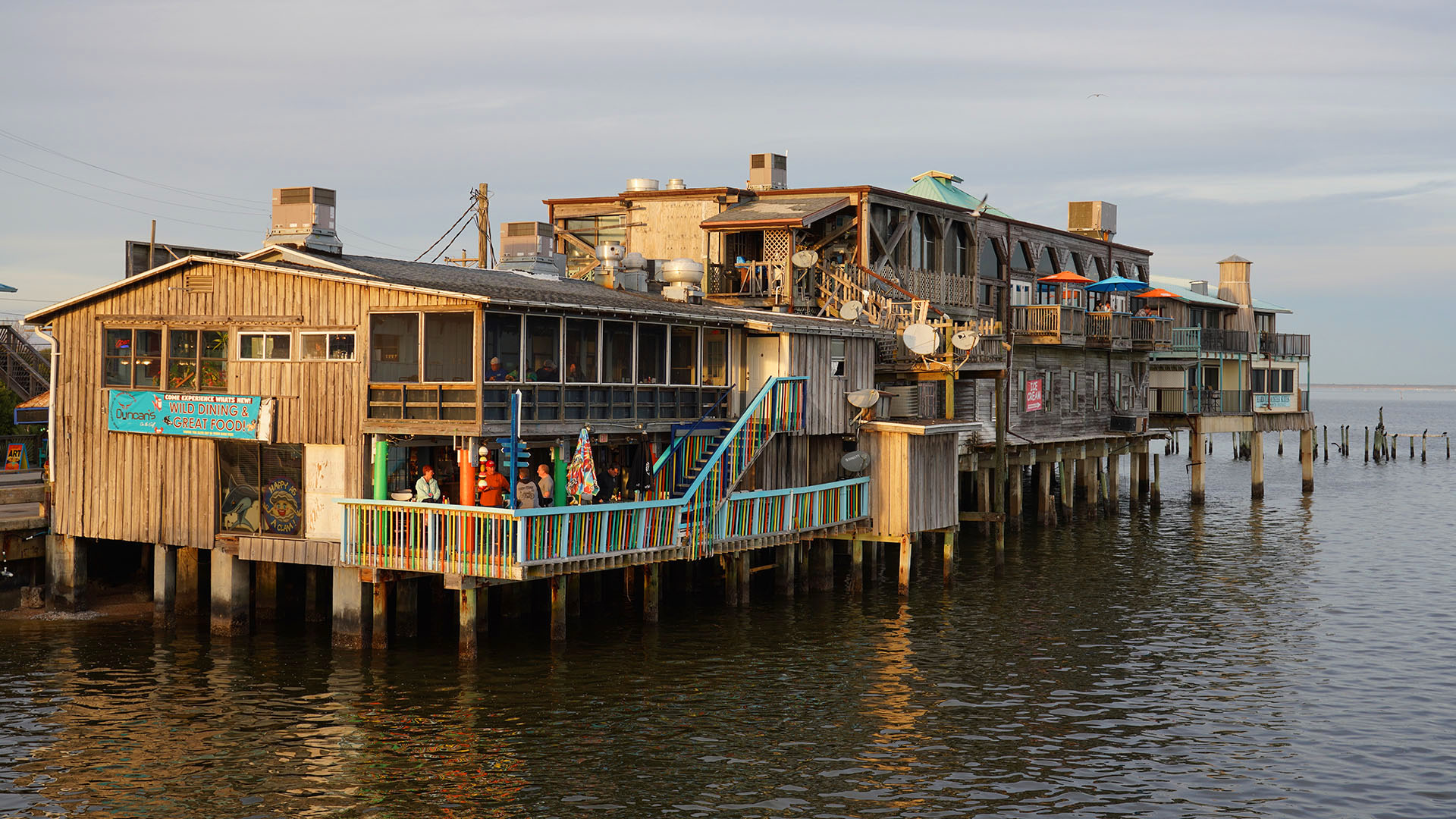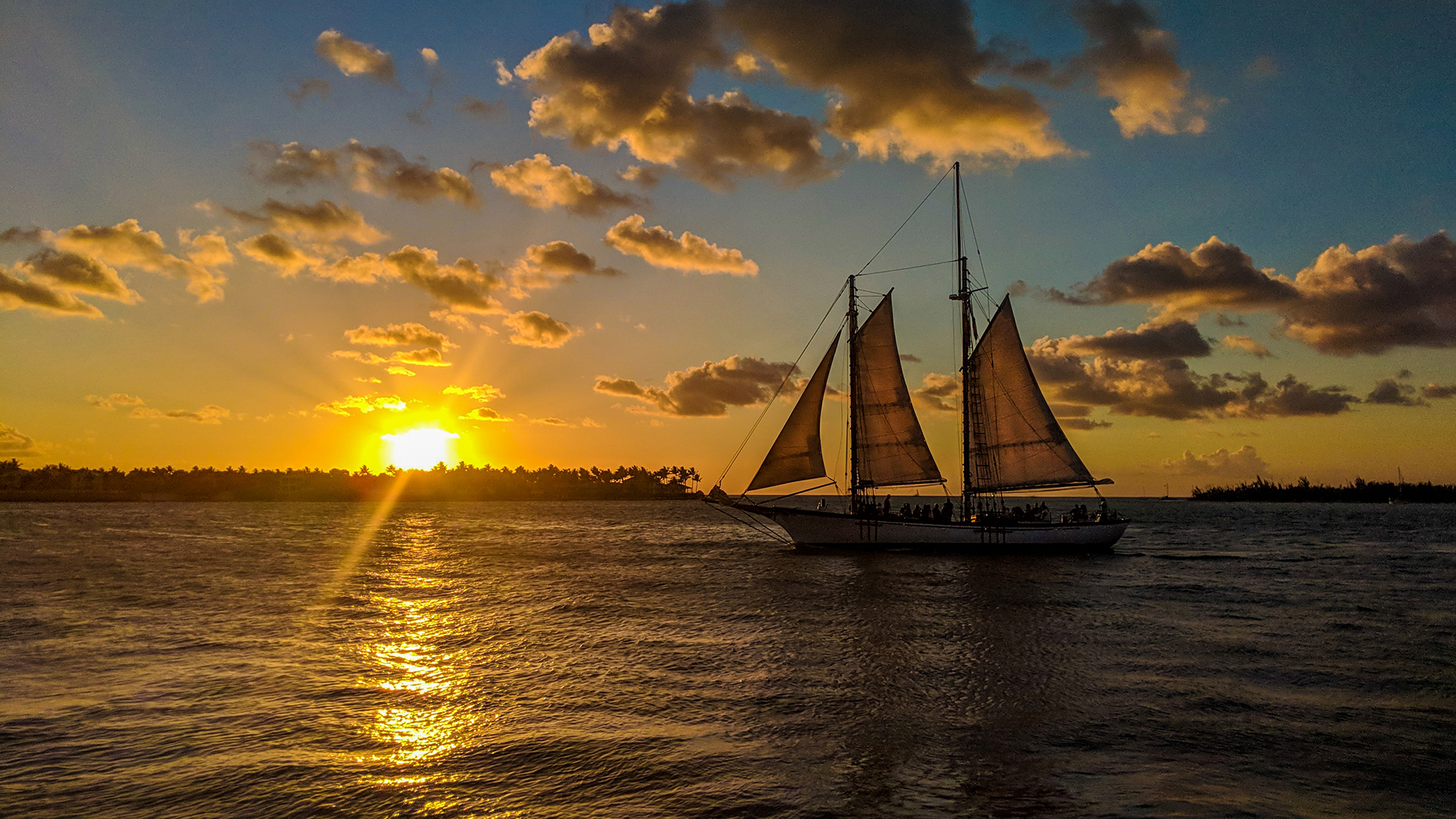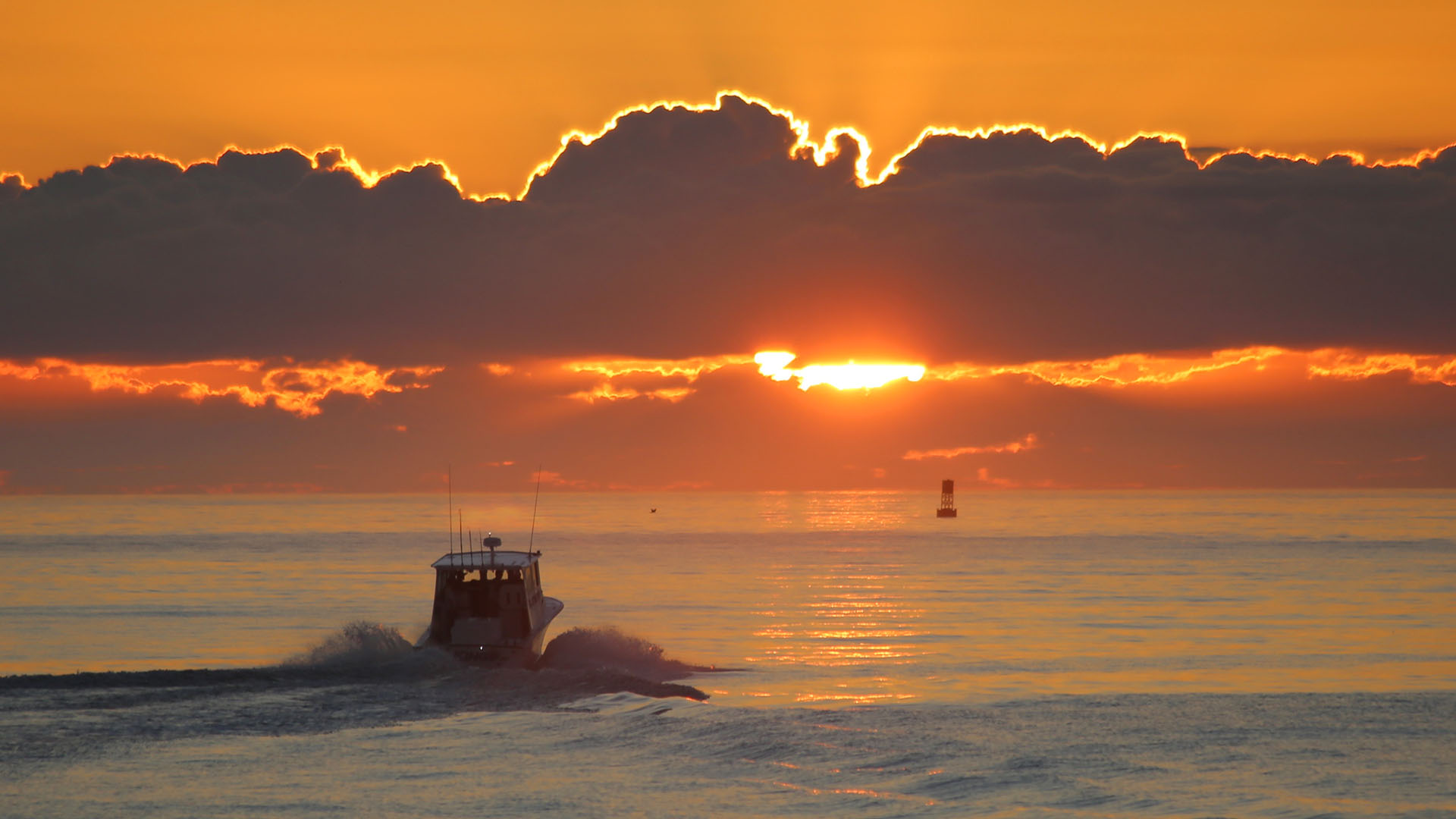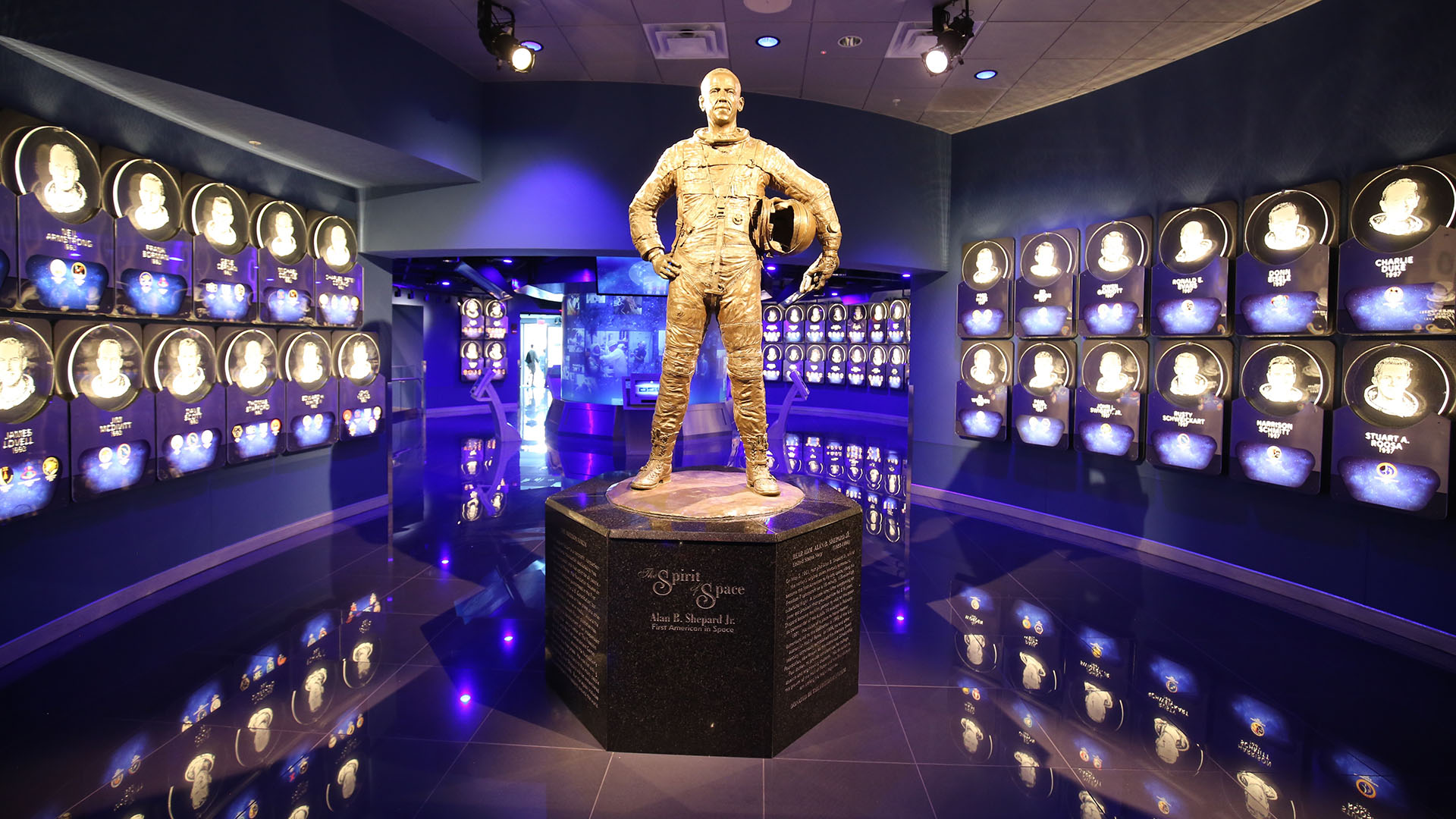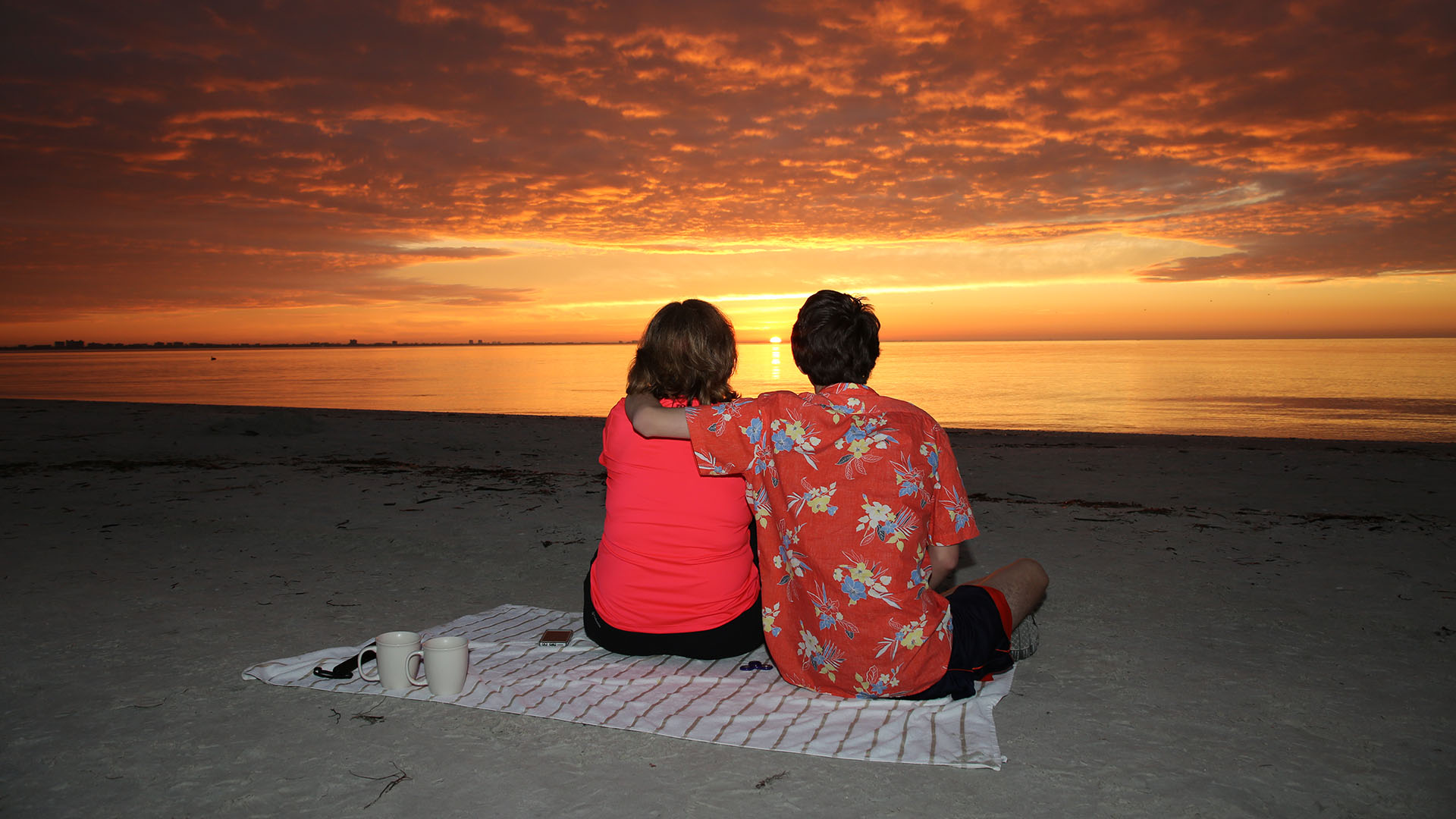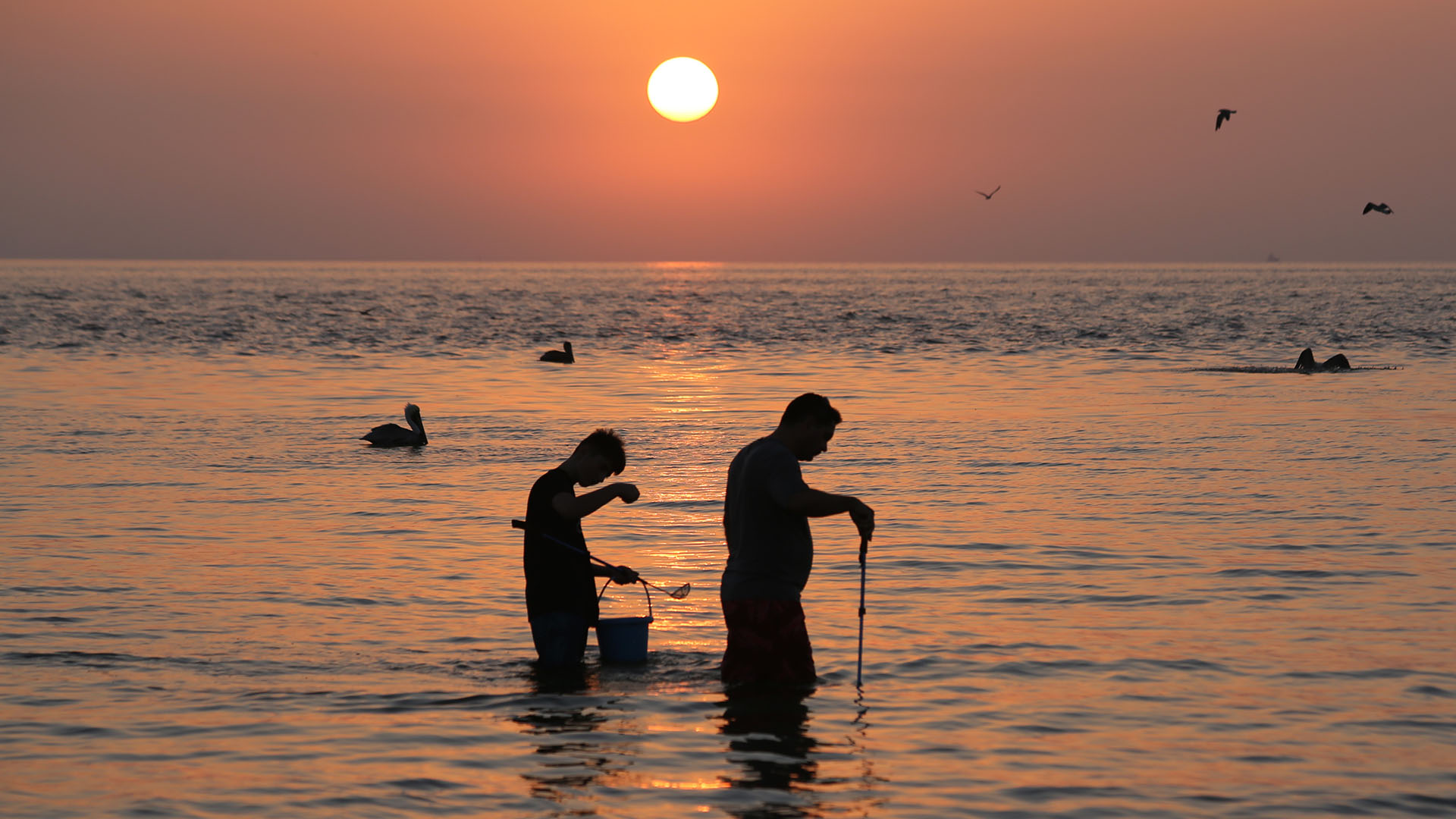Swimming With Manatees in Florida

A mother manatee feeds her offspring in the Crystal River.
A close encounter with these gentle giants makes for an unforgettable adventure.
Manatees are big, lovable wimps. And why shouldn’t they be? With no natural predators, there’s no need to scuffle to survive.
I already knew this as I floated in the Crystal River in Florida, about an hour’s drive north of Tampa. But as a massive manatee emerged from the depths, I became nervous. Would it crush me — or worse yet, tear me apart? The animal rose slowly but steadily through the murky water, inching closer and closer to my face.
Then, it kissed me.
Well, I’m not exactly sure that’s what it was doing around my neck, but when a 1,200-pound animal wants to snuggle, I’m happy to oblige.

The writer observes a manatee up-close. Photo by River Ventures

On a cold day, dozens of manatees head to Three Sisters Springs.
About 6,300 manatees live in Florida year-round. During the winter, the greyish-brown animals leave the Gulf of Mexico because the water drops below 68 degrees, which is too cool for them to survive. Hundreds head into estuaries on Florida’s west coast to places such as the Crystal River, where 72-degree water emerges from natural springs.
The Crystal River, along with adjacent Kings Bay and the nearby Homosassa River, are some of the few places where people can legally swim with manatees. Between November and April, the Kings Bay area has the largest cluster of manatees present in a natural environment in the world.
If you want to see manatees but keep your distance, you can opt to view these amazing creatures from the river bank. When I visited the Three Sisters Springs, a sign at the entrance gate indicated more than 100 manatees were there. Ellie Schiller Homosassa Springs Wildlife State Park, only 5 miles away, also has resident manatees.

The playful animals often roll over when touched.

Manatees are curious creatures and will come to you if you remain passive in the water.
Holy Sea Cow!
Sometimes known as sea cows, manatees are closely related to elephants, having evolved from the same land animals over 50 million years ago. In the wild, manatees live to about 60. They have terrible eyesight — the animals would be classified as legally blind if tested by our eye doctors — so they rely on other senses. Their body hair, known as vibrissae, is so sensitive, it can detect a heartbeat from 5 feet away. No doubt my newfound friend heard mine racing.
Manatees are typically found in shallow coastal areas and rivers, where they eat seagrass. They consume 10% of their body weight every day. That’s a lot of salad for an animal that weighs 800-1,200 pounds, although some female manatees may grow to 3,500 pounds.
They’re unapologetically plump, and it only adds to their allure. Christopher Columbus and other early explorers often mistook manatees for mermaids — mythical creatures that are half female and half fish. In 1493, Columbus noted that the mermaids he’d sighted were “not half as beautiful as they are painted.” But that’s just his opinion.

A snorkeler patiently awaits a manatee encounter.

The first encounter with a 1,000-pound manatee can be intimidating, but it's perfectly safe.
Swimming with Manatees
Gloria, a guide from the River Ventures tour company, laid out the strict rules governing manatee encounters: they can never be disturbed or chased; they can only be touched with one hand so they don’t feel cornered and threatened; and they shouldn’t be subjected to loud noises such as splashing. The most important rule, though, is that the manatee must initiate each encounter, and this is best accomplished by floating passively on the water’s surface.
After donning a wetsuit, I headed with five other people down to the dock where our guides, Chip and Skylar, were waiting. On this unusually cold and foggy morning that hovered around 38 degrees, we could see our breath, though the day would soon warm up. The cold start was a benefit, guaranteeing that manatees would be gathered near the warm springs. Early morning in winter — when it’s less crowded — is by far the best time to swim with the manatees.
My initial encounter with a huge bewhiskered manatee that February day was an unforgettable experience, but the fun was just beginning. Within minutes, I was interacting with dozens more. They unceremoniously bumped into me, stealthily passed beneath me and joyously invaded the space around my mask and snorkel. They seemed as curious about me as I was about them.
When I touched their backs with one finger, they rolled over to let me rub their bellies. Baby manatees weigh 60 pounds when born, and even they weren’t shy about getting up close and personal. I felt like I was floating in outer space, big leather balloons swirling all around me. The experience was exhilarating, eerie and unlike anything I’d ever done — and I’ve done a lot.
I’ve been in the open water with reef sharks, wild dolphins, giant stingrays and countless tropical fish, but swimming with manatees ranks as one of my favorite encounters with nature. After spending four hours with these lovable creatures, I realized the only harm they could do would be to kill me with kindness.
I can’t wait to give them another chance.

Skylar lets a manatee explore her mask.
Swimming with Manatees
Watch how these gentle creatures interact with people.
Related
Read more stories about Florida.
- Kennedy Space Center Launches Memories
- How and Where to Swim with Manatees in Florida
- Pacific Coast Highway - Washington and Oregon
- Day Trip to Dry Tortugas National Park
- Beaches Near Disney World
- Weekend Getaway to Anna Maria Island, Florida
- Road Trip to Florida Beaches
- Florida Road Trip from Cedar Key to Sanibel
- Take a Leisurely Drive Down to Key West
- Weekend Getaway to Florida's Space Coast
- Road Trip for Florida Fishing
- Attractions Near Disney World
- Weekend Getaway Fun for Families in Sanibel, Florida
- Weekend Getaway for Shells in Sanibel, Florida

